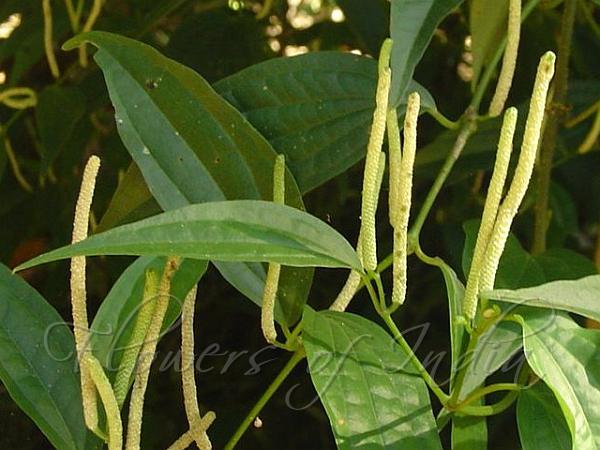|
| Wild Pepper |
|

|

| File size | 117384 |
| Original date | 11/14/08 11:26 AM |
| Resolution | 1280 x 960 |
| Flash | Flash did not fire |
| Focal length | 6.3mm |
| Exposure time | 1/50s |
| Aperture | 3.8 |
| Focus Distance | |
| Metering Mode | Spot |
| Camera make | SONY |
| Camera model | DSC-P52 |
| Sensor type |
|
|
|
|
Photo: |
Botanical name: Piper peepuloides Family: Piperaceae (Pepper family)
Synonyms: Chavica peepuloides, Chavica neesiana
Synonyms: Chavica peepuloides, Chavica neesiana
Wild pepper is a slender bush, climbing below with
free spreading slender branches. Branches are often warted. The species
name peepuloides probably arises from its perceived resemblance
to the medicinal herb
Peepali or Pipli. Leaves are shortly
stalked, linear- or ovate-oblong, long-pointed, 5-12.5 x 2.5-5 cm,
variable in breadth, sometimes narrowed to a minutely heart-shaped
base. Base is rounded, 3-5-nerved nearly to the tip. Stalks of upper
leaves are 3-6 mm long, of lower rarely 1.2 cm. Male spikes are
slender, 5-7.5 cm long, covered with peltate bracts, stamens 2-4.
Females spikes are 1.2-1.6 cm, cylindric, longer than their stalks.
Fruit is 2 mm in diameter. Wild pepper is found in Eastern Himalayas,
from Nepal to NE India and Bangladesh, up to altitudes of 1000 m.
Medicinal uses: In Aruncahal Pradesh, dried
leaves are made into a paste with water and consumed to get relief from
fever.
In Aruncahal Pradesh, dried
leaves are made into a paste with water and consumed to get relief from
fever.
Medicinal uses:
 In Aruncahal Pradesh, dried
leaves are made into a paste with water and consumed to get relief from
fever.
In Aruncahal Pradesh, dried
leaves are made into a paste with water and consumed to get relief from
fever. | Identification credit: Prasanta Kumar Mukherjee, J.M. Garg | Photographed in Sohra Forest, Meghalaya. |
• Is this flower misidentified? If yes,